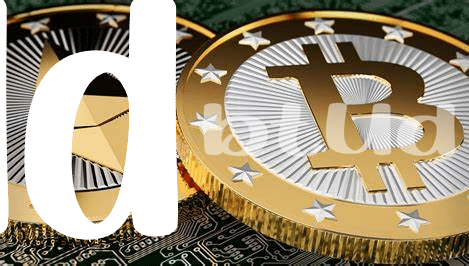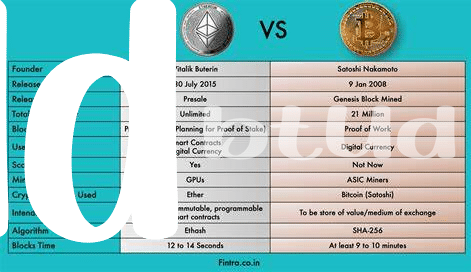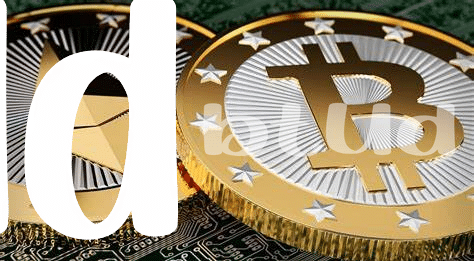🚀 Unveiling Ethereum: More Than Just Money

Ethereum is often thought of as digital money, but it’s really a whole lot more. Imagine it as a giant playground for building all kinds of digital wonders. It’s a platform where developers can get creative, making applications that can change the way we do things online, from how we vote to how we play games. Unlike just being a form of money, Ethereum is like the clay that artists use to sculpt. It gives people the tools to build their own digital worlds, making it a foundation for a future web that’s limited only by imagination. This flexibility has led to an explosion of projects, from digital art markets to new ways of funding businesses. It’s this ability to support innovation that makes Ethereum a standout in the digital universe.
| 👩💻 | Ethereum: A platform not just for currency, but for creation. |
| 🌍 | The foundation for a future web, limited only by our imagination. |
| 🚀 | Empowering innovation and new digital experiences. |
💰 Bitcoin: the Gold of the Digital World
Imagine opening an old treasure chest, but instead of gold coins, it’s filled with digital Bitcoin. That’s pretty much how some people view Bitcoin today – as the digital age’s version of gold. Just like gold, Bitcoin has become a way for people to store their wealth, safe in the knowledge that its global acceptance and limited supply make it a potentially valuable asset for the future. What’s fascinating is how Bitcoin maintains its value despite the ever-changing digital world. Its simplicity, in being just a currency without the bells and whistles, is what gives it strength, akin to gold which is valuable just by being itself. However, this very simplicity sparks a debate: is it enough for the future, or do we need something more? This question becomes especially intriguing when considering the advancements and flexibility of platforms like Ethereum. To delve deeper into this debate, a fascinating read at https://wikicrypto.news/adoption-rates-analyzing-bitcoins-lead-over-ethereum compares the adoption rates and potential of Ethereum against Bitcoin’s steadfast position as the digital gold standard, offering insights into what the future might hold for both.
🎨 Ethereum’s Superpower: Building the Future Web

Imagine a giant Lego set where each block represents a piece of digital information or function. That’s pretty close to what Ethereum offers. Unlike traditional currency or even Bitcoin, which is often seen as digital gold, Ethereum is like a vast playground for creating digital services and experiences. It’s a place where developers can build applications, not just for financial purposes, but for a variety of uses, from gaming to secure voting systems. This flexibility is what makes Ethereum stand out as a transformative force in creating what many call the future web.
Ethereum’s ability to support smart contracts – agreements that automatically execute when their conditions are met, without the need for a middleman – is a game-changer. It paves the way for a world where transactions and services can be much more efficient, transparent, and democratic. Through Ethereum, the web is evolving into a space where trust is built into the system, empowering users in ways previously unimaginable. As we stand on the brink of this digital frontier, Ethereum’s role in shaping the internet of tomorrow seems not just likely, but inevitable.
💾 Bitcoin’s Simplicity: Strength or Weakness?

When we think about Bitcoin, it’s like looking at a sleek, straightforward machine. It does one thing and does it well: acts as digital gold. This simplicity is its crowning glory, attracting folks who long for a solid, uncomplicated digital asset. It’s like a reliable old car that gets you from point A to B without any fuss. But, could this very simplicity be seen as a limitation? In a world buzzing with innovations, being the steady rock means Bitcoin isn’t built for fancy tricks or creating complex digital systems – it’s here to store value, rock-solid and unchanging.
On the flip side, this straightforward nature means security isn’t cluttered with too many variables, making it a tough nut to crack for any would-be troubles. But as we sail into the future, teeming with smart contracts and decentralized apps, one wonders if Bitcoin’s simplicity will keep it in the race or gradually turn it into a digital monument of the past. For those pondering how does bitcoin compare to gold versus ethereum, it’s clear: while Bitcoin shines as a beacon of stability, its no-frills approach might limit its role in the sprawling digital ecosystem ahead.
🔒 Security Face-off: Ethereum Vs. Bitcoin
When it comes to locking things up tight, both Ethereum and Bitcoin have their own unique ways of keeping our digital treasures safe. Imagine Ethereum as a high-tech building with all kinds of smart locks on every door – it’s constantly updating with new security features, thanks to its ability to support complex contracts and applications. This means it’s always evolving, but with that comes a certain level of risk; it’s like adding new locks without always knowing how strong they are. On the flip side, Bitcoin keeps it simple. Think of it as a vault with one, extremely tough lock that’s been tested over time. It doesn’t try to do too much, focusing instead on being a secure place to store your digital gold. However, in the tech world, where hackers are as common as coffee shops, both Ethereum and Bitcoin face their own challenges. It’s a bit like a security dance-off, with each one stepping up their game to protect users against unwanted guests.
Here’s a quick look at how Ethereum and Bitcoin stack up against each other in security:
| Feature | Ethereum | Bitcoin |
|---|---|---|
| Complexity | High | Low |
| Update Frequency | High | Low |
| Risk Level | Varies | Lower |
| Focus | Smart contracts & applications | Store of value |
Both have proved their worth in the world of digital currency, but the journey to keep them safe continues as the landscape of technology changes.
💡 the Future: Where Do We Go from Here?

Looking ahead, we’re stepping into a fascinating era where the paths of Ethereum and Bitcoin seem to diverge yet complement each other in shaping the future of digital currency and blockchain technology. As we ponder the journey ahead, imagine a world where Ethereum’s ever-evolving platform enables not just financial transactions but becomes the backbone of a new internet age, powering decentralized applications that we’ve only begun to dream of. On the flip side, Bitcoin’s unwavering mission as a digital gold continues to reassure those looking for a safe harbor in the stormy seas of financial markets. It’s a tale of two visions: one, a dynamic ecosystem fostering innovation and the other, a steadfast bastion of value. This equilibrium could lead us into a future where both Ethereum and Bitcoin find their unique niches, supporting an intricate digital economy. As we chart this unexplored territory, keeping an eye on how these technologies evolve will be crucial. For more insight on what drives their value, consider exploring what impacts Bitcoin value versus Ethereum. In this digital odyssey, the synergy between Ethereum’s innovation and Bitcoin’s reliability might just be the guiding stars that lead us to a more interconnected and secure world.
